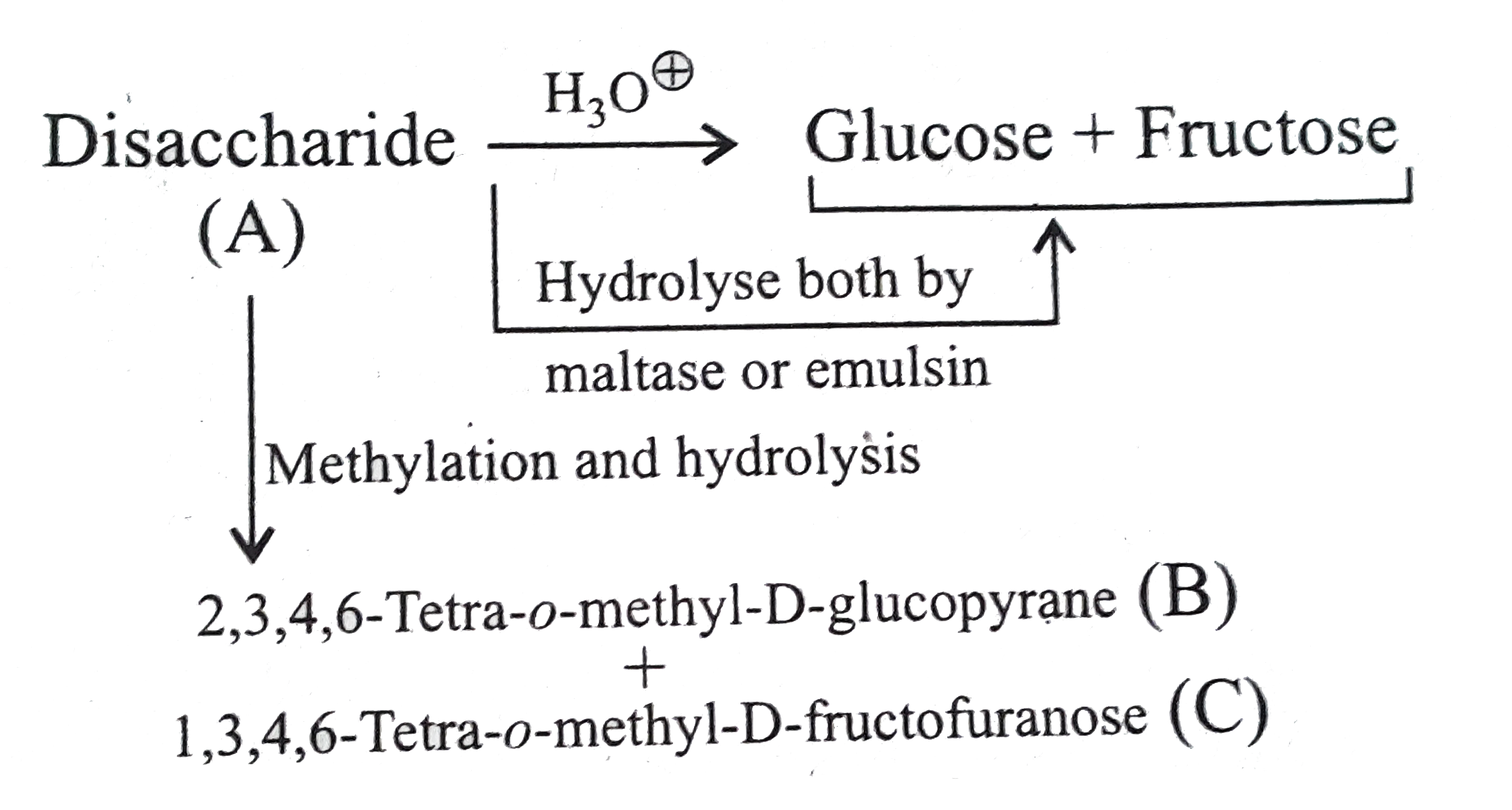Complete Solutions to Solved Examples of chapter BIOMOLECULES of Class 12 book with complete answers and questions
| Class 12 | CHEMISTRY |
| Chapter | BIOMOLECULES |
| CENGAGE CHEMISTRY | Solved Examples |
| Number Of Questions | 45 |
| Academic Year | 2023-24 |
Convert `D`-glucopyranose to `2,3,4-` triethyl gluocopynoside.
View SolutionGive Principle of: Centrifugation
View SolutionDifferentiate between `D-`erythrose and `D-`threose by (a) mild oxidation and (b) reduction.
View SolutionName the smallest aldose which forms cyclic hemiacetal and the functional groups are involved in its formation.
View SolutionGive 4 properties of metals.
View SolutionGive the structure and `IUPAC` name of disaccharide, which gives the reactio given below:

Given, `(A)` does not reduce Fehling's solution and does not mutarotate.
View Solutiona. Give a chemical test of starch with `I_(2)`.
b. What is the change in colour, when the test is performed at high temperature?
c. What structural changes occurs during the change in reaction conditions?
d. Do amylose and amylopectin give the same colour?
View SolutionState necessary condition of iron corrosion.
View SolutionWhen a Mg ribbon is burnt in air, Mg is oxidised or Reduced?
View SolutionAluminium oxide can react with both Acid and Bases. Justify.
View SolutionDefine the terms:
a. Gene , b. Genetic code,
c. Transcription, d. Translation
e. Codond
View SolutionList three functions of nucleotides in a cell.
View SolutionThe two strands in DNA are not identical but are complementary. Explain.
View SolutionWrite two main functions of carbohydrate in plants.
View SolutionWhat type of bonding occurs in globular protein?
View SolutionWhat will be the sequence of bases on `mRNA` molecule synthesised on the `DNA` strand, `TATCTAC TGGA`?
View SolutionName one reducing and one nonreducing disaccharide.
View SolutionName on fibrous and one globular protein.
View SolutionWhat is the cause of sickle-cell anaemia?
View SolutionGive one example of a denaured protein.
View SolutionName a polypeptide hormone which maintains the glucose level in the blood.
View SolutionWhat is a nucleoside?
View SolutionWhat is a nucleoside?
View SolutionName the purine bases and pyrimidine bases present in RNA and DNA.
View SolutionWhat are waxes?
View SolutionWhat is mutarotation ?
View SolutionWhat are nutral amino acids? Give two examples.
View SolutionWhat are acidic amino acids?
View SolutionWhat are basic amino acids? Give one example.
View SolutionName the enzymes that help in the digestion of carbohydrates.
View SolutionWhich one of the following is a protein deficiency disease?
View SolutionArrange the following sugars in the increasing order of sweetness: glucose, fructose, sucrose.
View SolutionPhospholipids are
View SolutionGive two examples of disaccharides.
View SolutionName two important polysaccharides of `D`-glucose.
View SolutionWhat is a peptide bond?
View SolutionName the building blocks of proteins.
View SolutionWrite the zwitter ion structure of glycine.
View SolutionWhich enzyme dissolves blood clots in the coronary artery?
View Solutionname three nucleic acids which are used in protein synthesis.
View SolutionWhat are biofuels?
View SolutionWhat are the monomers constituting proteins?
View SolutionWrite short notes on the following: (a) Enzyme specificity, (b) Enzyme inhibition.
View SolutionWhat is the effect of `pH` on the action of enzyme?
View SolutionWhat are the functions of nucleic acids ? What are the structures of sugar molecules present in DNA and RNA.
View Solution
Solved Examples questions and complete solutions for chapter BIOMOLECULES of CENGAGE CHEMISTRY (ENGLISH) of Class 12
All Exercises from CENGAGE CHEMISTRY Class 12 CHEMISTRY BIOMOLECULES
- Exercises (Assertion-Reasoning)
- Exercises (Concept Application)
- Exercises (Linked Comprehension)
- Exercises (Multiple Correcttype)
- Exercises (Single Correcttype)
- Exercises Archives (Analytical And Descriptive)
- Exercises Archives (Assertion-Reasoning)
- Exercises Archives (Single Correct )
- Illustration
- Solved Examples